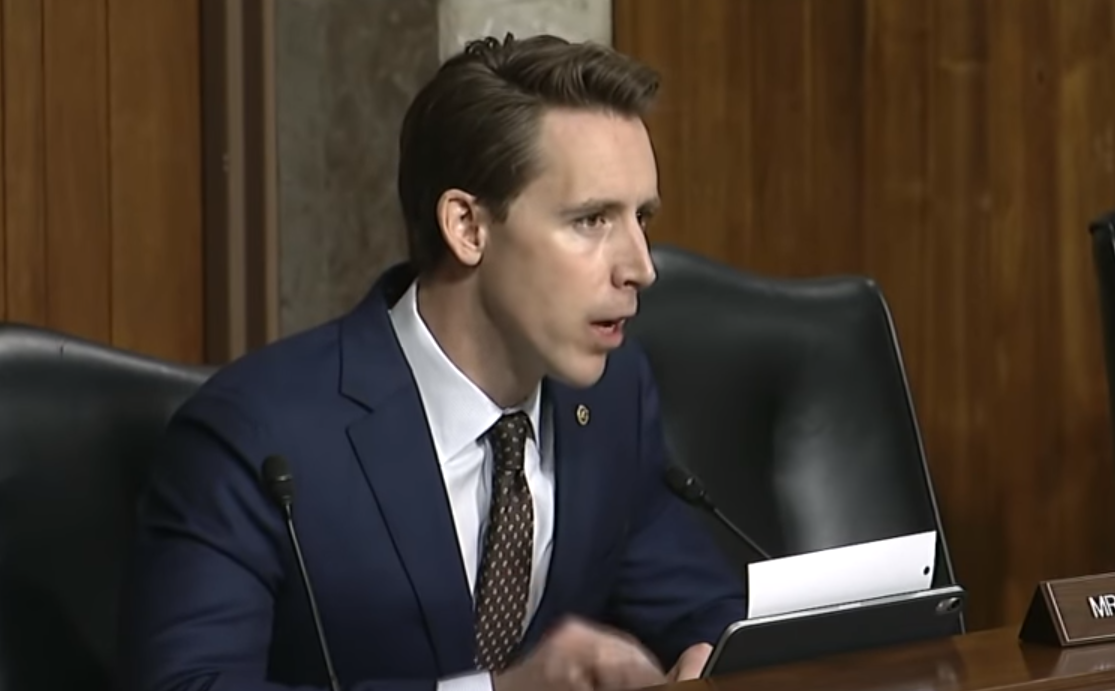Hawley Seeks FCC Status Report on Rural Missouri Broadband Buildout

The smarter way to stay on top of the multichannel video marketplace. Sign up below.
You are now subscribed
Your newsletter sign-up was successful
Sen. Josh Hawley (R-Mo.) is asking the FCC for an update on efforts to get broadband to his state.
The FCC concluded in its most recent report on deployment of advanced communications services that it was being rolled out in a reasonable and timely fashion, and has taken steps to goose deployment in rural areas.
But Hawley wants to know some specifics, in his case specifically the status of $176 million in broadband subsidies the FCC gave to Wisper ISP back in 2018 to connect 60,000-plus locations in his state.
He said little is known about the status of that buildout and he wants to know more.
In a letter to FCC chairman Pai, Hawley said broadband is critical, but that the latest FCC data shows that 45% of the state's rural residents don't have access to wired broadband--tn that same FCC deployment report, the commission said wireless broadband was still not a substitute for wired.
Related: FCC Hands Out More CAF II Subsidy Money
"I hear regularly from Missourians who are concerned that their communities are being left behind," he wrote Pai, according to a copy of the letter supplied by the Senator's office.
The smarter way to stay on top of the multichannel video marketplace. Sign up below.
Hawley pointed out that Wisper got the majority of Missouri's $254 million in CAF II broadband subsidy money, one of the largest awards to a single company, and said that warrants oversight of its ability to deliver on its buildout commitments.
Hawley wants answers to the following questions by Feb. 19:
1. "Can you provide a specific project update on Wisper ISP Inc’s deployment of service in Missouri?
2. "How many locations out of the more than 60,000 awarded to Wisper ISP, Inc has the company added service to since notification of their award in 2018?
3. "How does the quality of the services added at these locations compare to the quality commitments made by Wisper ISP, Inc?
4. "How does the buildout of Wisper ISP, Inc’s services compare to their original project timeline shared with the FCC? Are they on track?
5. "What oversight will your agency conduct and what reporting requirements are in place to ensure Wisper ISP, Inc. is making sufficient progress toward their obligation?
6. "What safeguards exist to ensure that the funding provided to Wisper ISP, Inc. is not wasted and can be rescinded and reallocated in order to meet the FCC’s broadband access benchmarks for rural Missouri?
7. "Will the locations won by Wisper ISP, Inc. that are not yet receiving service be considered eligible for funding through the Rural Digital Opportunity Fund?"
The tone of Hawley's letter was cordial, saying he "look[ed] forward to [Pai's] answers and to seeing these funds deployed quickly and efficiently to the areas that need them most."
The CAF II money is being allocated over 10 years to unserved areas in 45 states. The largest incumbent price cap carriers—AT&T, Verizon, CenturyLink—declined about $2 billion in CAF II support for building out broadband to high-cost, generally rural, areas, in 20 states, so the FCC opened that pot of money up to competitors, like cable broadband providers, via auction.
All that money is coming from the Universal Service Fund (USF) for high-cost, mostly rural, areas for which there is no business case for building out broadband absent that subsidy.
"The FCC has been working diligently to process authorizations and we will have additional ones coming very soon," said an FCC spokesperson.
Contributing editor John Eggerton has been an editor and/or writer on media regulation, legislation and policy for over four decades, including covering the FCC, FTC, Congress, the major media trade associations, and the federal courts. In addition to Multichannel News and Broadcasting + Cable, his work has appeared in Radio World, TV Technology, TV Fax, This Week in Consumer Electronics, Variety and the Encyclopedia Britannica.

